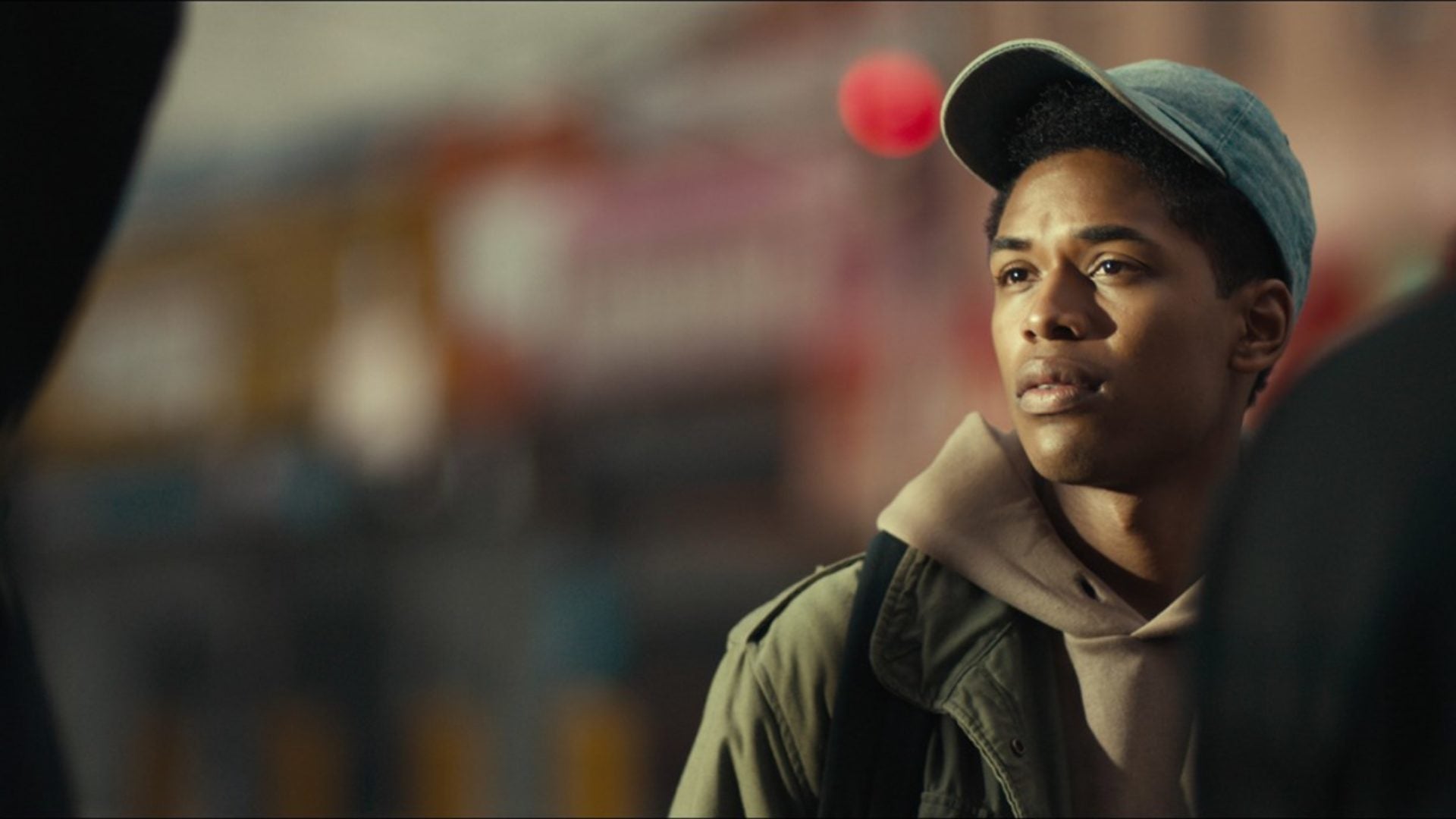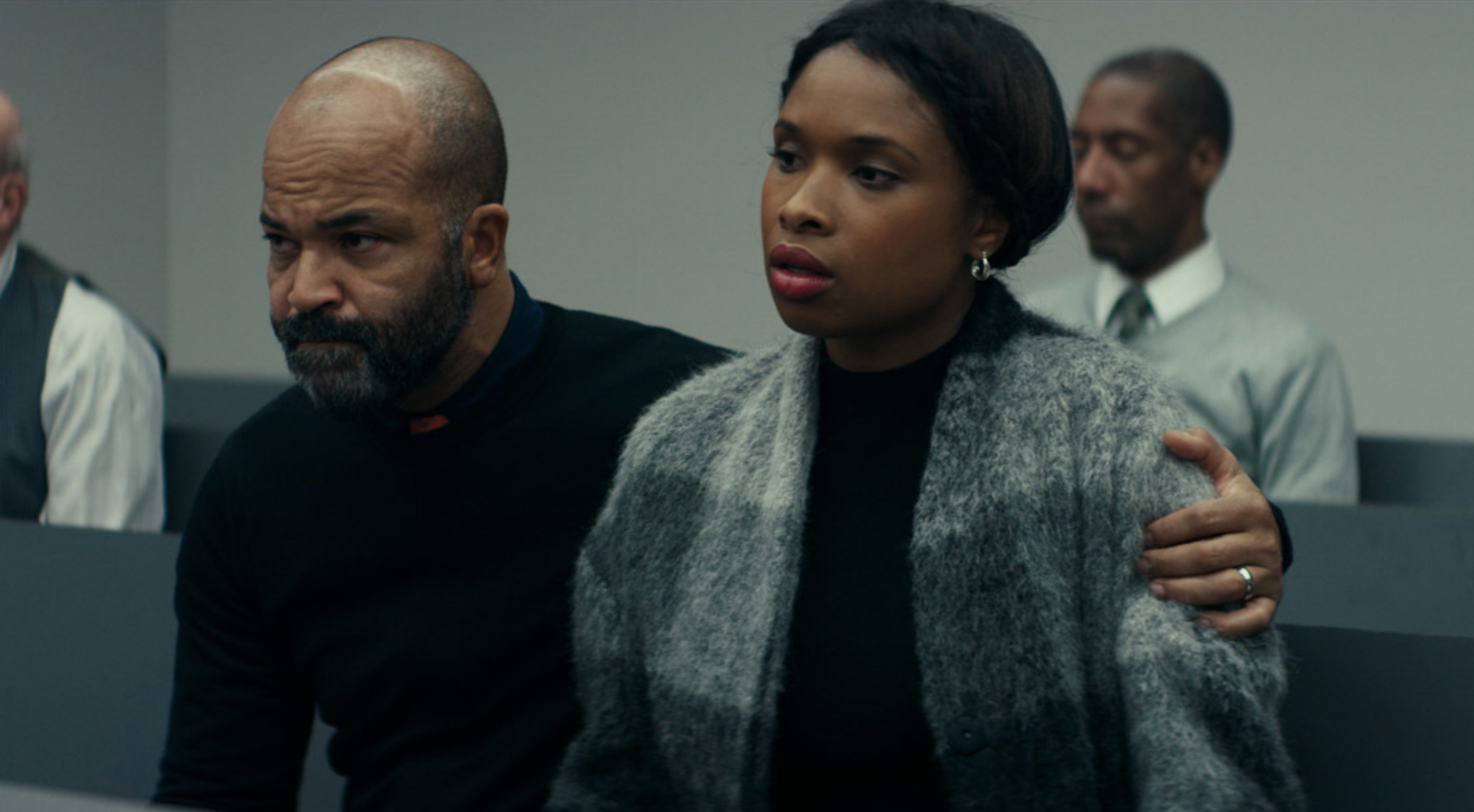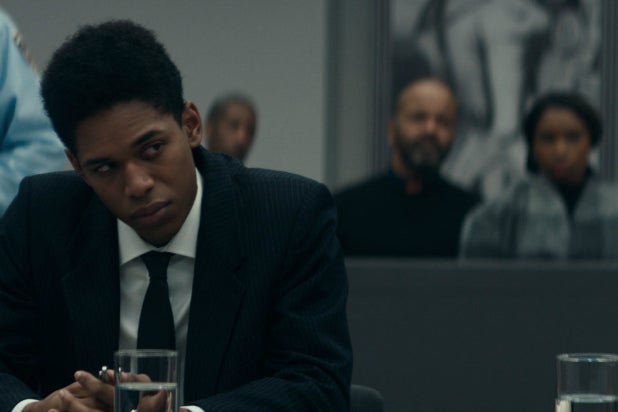
*This film was reviewed during the 2019 Urbanworld Film Festival
Acquaintance. Brother. Friend. These are casual words we use to align or dissociate ourselves from people in our lives.
But in director Anthony Mandler’s riveting new film, All Rise, the distinctions determine the innocence of a teenage boy in Harlem whose relationships with young Black men in his neighborhood put him at risk of spending a lifetime in prison.
Adapted from the acclaimed Walter Dean Myers novel, Monster, All Rise tells the story of Steve Harmon (Kelvin Harrison, Jr.), a Black high school senior and aspiring filmmaker who can easily be perceived as a loner as he walks the streets of his Harlem neighborhood snapping pictures and capturing video of people who fascinate him—some that are strangers, others that are not. But in actuality, he’s got a core group of friends in his high school film club, among them his sometimes-muse and caring girlfriend, Renee (Lovie Simone). He also has a loving relationship with his younger brother, Jerry (Nyleek Moore), and their parents, played by Jennifer Hudson and Jeffrey Wright.

But in the eyes of law enforcement, it’s Steve’s associations with two young Black men on the block, King (ASAP Rocky) and Bobo (John David Washington), that they instantly believe tarnish his chaste image and inculpability in a convenience store robbery-turned-murder.
All of a sudden, Steve goes from a film nerd with a camera to another young Black man in an orange jumper behind bars.
It’s a scene that’s become all too familiar in contemporary Black films and TV series today—a Black male grappling with the constant criminalization of Blackness as he struggles to maintain his hope and sanity in prison. When They See Us and the upcoming Just Mercy are two of the many that come to mind. Mandler also introduces Steve in such a light from inside his tiny cell, terrified and confused about where it all went wrong, soon meeting with his white lawyer (Jennifer Ehle) who doesn’t say much to ease his concern. As an audience, we’ve been conditioned to expect the condemnation of Blackness so prevalent in news headlines in our films as well.
It’s a frightening and demoralizing thing to get used to. But thankfully, Mandler’s narrative doesn’t solely rely on how white law enforcers devalue Black people. Instead, the filmmaker interweaves the disheartening trial and cellblock scenes in All Rise with flashbacks of Steve’s life on the outside prior to his arrest. It’s where he takes a softer focus on the promising teen who learns to navigate his neighborhood by being casually polite to King and Bobo on the street, who we later learn are the perpetrators of the convenience store crimes—giving them dap when he sees them or engaging in brief, mindless banter to avoid confrontation. They are, even to Steve’s own testimony in court, merely “acquaintances.”
But at this point in the film, which is before we learn the details of King and Bobo’s crimes, we’re not given much reason for Steve to be intimidated by them, which undercuts the film’s own message of how blackness is perceived and criminalized. Mandler, with screenwriters Janece Shaffer and Colen C. Wiley, introduces us to the two men through Steve’s reactions of them, particularly King who Steve interacts with more regularly, creating a prickly yet mystifying tension built primarily on looks. We see neither King nor Bobo commit any crimes at this point. In fact, they’re just two young brown-skinned men with some bass in their voices.
It’s something Mandler never fully resolves until toward the end of the film when he reveals what they did. But by that point, the audience has already indicted the two men for an unknown crime, for the sake of the film’s established protagonist. Early in All Rise, Mandler shows the audience the black and white footage of the convenience store crimes, keeping the culprits’ faces unidentified presumably to highlight the arbitrary criminalization of young Black men—underscored by the testimony of a white woman at the store—but it simultaneously decriminalizes King and Bobo. Still, it’s made clear throughout the film, through Steve’s constrained interactions with them only, that they are villains.
It’s a pesky flaw that undermines the film’s biggest point, made more perplexing by another scene that features Steve shooting video of King playing a game in the park with an older man. It captures a sense of King’s humanity that is met with Steve’s warm smile as he watches the exchange.
Are we supposed to emphasize with King because maybe he’s a good person? Or is this moment only to highlight how King used friendly manipulation to later connect Steve to his crimes?

Still, the performances in the film are generally solid. Though, it is Harrison’s that elevates it, taking Dean’s portrayal of a Black teen indicted by association and his blackness, from the page to heartrending new heights.
He is the reason to watch this movie.
—
All Rise is slated for release in theaters this November.







